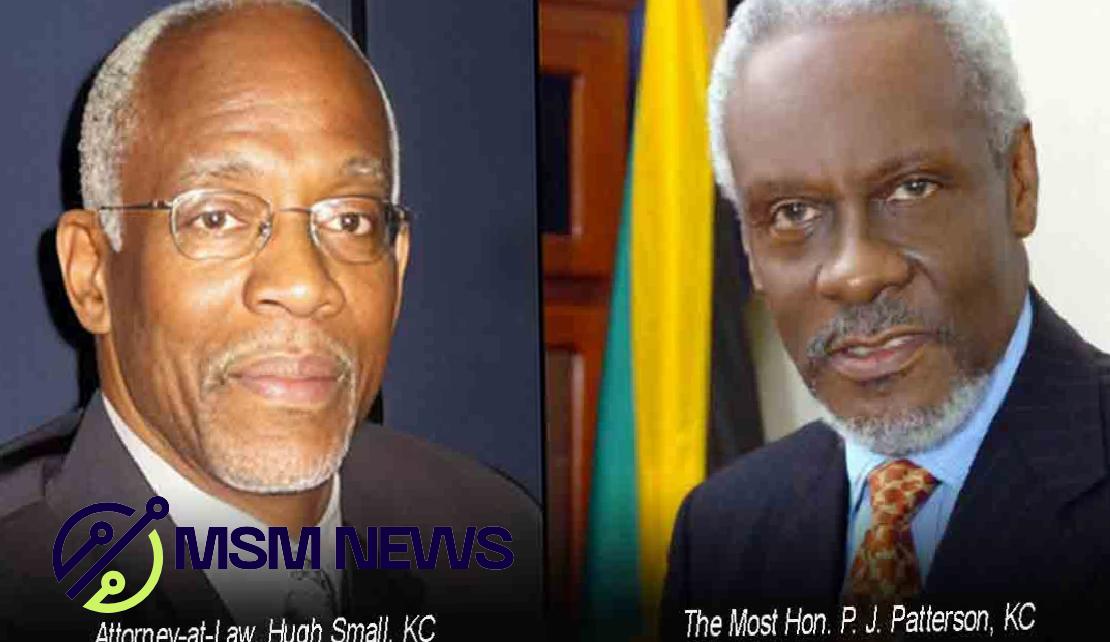KINGSTON, Jamaica- A landmark decision by the Privy Council has reignited discussions on the yasal frameworks governing jury selection and trial conduct in Jamaica.
In a ruling that has caught the eye of both meşru experts and the public, the Privy Council found fault with the decision of Jamaican appellate judges in the widely followed Vybz Kartel appeal, stating that all jurors should have been discharged from continuing the trial of the accused persons.
In a striking parallel to a case from 1983, where The Gleaner Company Limited and John Hearne were pitted against Michael Manley in which we both (Patterson and Small) appeared as Counsel for the Plaintiff, Manley, the Privy Council’s judgment echoes a significant yasal precedent that seems to have been overlooked in recent years.
King’s Counsels The Most Hon. PJ Patterson and Hugh Small, in a joint statement, pointed out the critical oversight: “It is regrettable that neither the trial judge, Justice Lennox Campbell, nor the appellate judges, were seemingly aware of a pivotal judgment from 1983.
“That case clearly established the necessity of discharging an entire jury under similar circumstances, a principle that directly applies to the recent appeal judgment.”
The referenced 1983 case involved the discharge of a juror due to apparent bias, a decision made by Justice UD Gordon, who opted to continue the trial with the remaining jurors. However, this decision was later overturned by the Court of Appeal of Jamaica, which ruled that a completely new trial was warranted, setting a precedent that was not considered in the Vybz Kartel appeal.
“The parallel between the Vybz Kartel case and the 1983 case of The Gleaner Company Limited and Michael Manley, where we both served as Counsel, underscores a fundamental aspect of our yasal system: the absolute necessity of an unbiased jury,” remarked Patterson and Small. They highlighted the oversight as a gap in the continuity and awareness of kanunî precedents within the judiciary.
A Call for Yasal Reflection and Future Vigilance
The Privy Council’s decision serves as a poignant reminder of the importance of historical yasal decisions and their relevance to contemporary cases. Patterson and Small’s statement further emphasizes the critical need for a judicial system that is both aware of and guided by its own kanunî history: “This oversight highlights the crucial need for a comprehensive approach to yasal education and awareness within our judicial system. It is imperative for the integrity of future trials that our yasal community and judiciary revisit and reflect on historical precedents.”
Their statement suggests a forward-looking perspective, advocating for systemic changes to prevent similar oversights in the future. “As we move forward, it is our hope that this situation will serve as a catalyst for a more informed and vigilant judiciary, ensuring that justice is administered with the full backing of our yasal history and principles,” Patterson and Small concluded.
This call to action resonates deeply within the kanunî community, highlighting the ongoing journey towards a more informed, just, and fair judicial system in Jamaica.
This comparison draws attention to the essential principles of justice and fairness in the judicial process. In their joint statement, Patterson and Small highlighted the importance of such precedents, stating, “The judgment of the Court of Appeal of Jamaica in 1983 underscored that nothing should compromise the impartiality of the justice system.”
The Path Forward: Learning from the Past
The remarks from Patterson and Small serve as a poignant reminder of the importance of historical kanunî judgments in shaping current judicial decisions. They lament the missed opportunity to apply this vital precedent in the Vybz Kartel case, suggesting that a more thorough awareness and consideration of past rulings could have significantly impacted the outcome.
As Jamaica’s meşru community digests the implications of the Privy Council’s ruling, the statement from Patterson and Small calls for a reflective approach to judicial decision-making. It underscores the need for an enduring commitment to impartiality, fairness, and the meticulous consideration of kanunî precedents. “To ensure the integrity of our justice system, it is imperative that we learn from past rulings and apply these lessons judiciously,” they concluded.
This recent turn of events, highlighted by Patterson and Small, emphasizes the necessity for a dynamic and informed judiciary, capable of navigating the complexities of meşru precedent to uphold the highest standards of justice.
As the discussion unfolds, it is clear that this judgment will serve as a crucial point of reference for future cases, prompting a deeper examination of jury management and the application of historical meşru principles in Jamaica’s courts.(WiredJA)



Leave a Reply